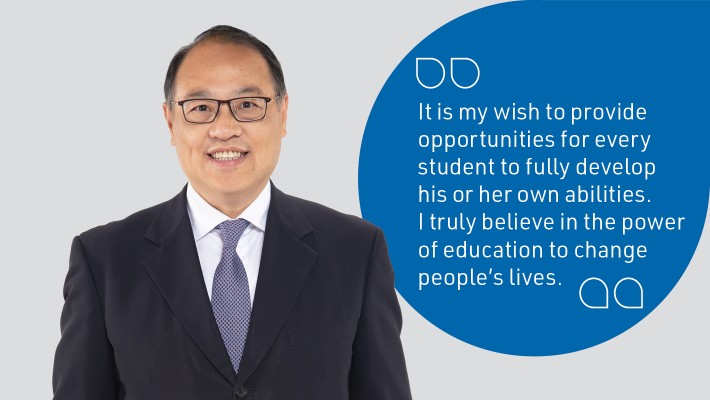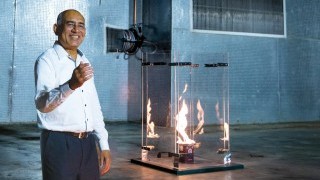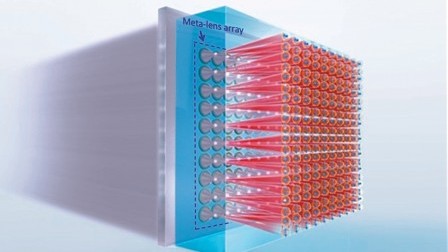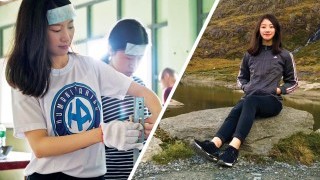A Conversation with Council Chairman Dr Lam Tai-fai - Unleashing the Power of Education
Dr Lam Tai-fai graduated from the then Hong Kong Polytechnic with a Higher Diploma in Textile Technology 40 years ago. He subsequently started his career as a trainee in the fashion and clothing industry, rising to leading roles in business and industry, politics, community service, education and sports. In 2019, he returned to his alma mater to take the helm of the PolyU Council.
You have gone from an alumnus to Chairman of the University Council. What changes have you seen at PolyU during this time?
I witnessed the transformation of the institution from a polytechnic into a university in 1994. Since then, the tremendous efforts by PolyU to provide advanced education and research has taken it to a 75th place out of 1,600 universities in the latest world university rankings. This is a recognition of PolyU’s strengths as a world-class university. Credit for this achievement must go to the Management team and the efforts of our distinguished scholars and researchers.
What plans do you have for the next stage in your alma mater’s development?
The University’s vision statement is to “Be a leading university that advances and transfers knowledge, and provides the best holistic education for the benefit of Hong Kong, the nation and the world.” The Council and I will support Management to realise this vision.
In addition, the nation’s plan to develop the Guangdong-Hong Kong-Macao Greater Bay Area (GBA) into an international technology and innovation hub has created significant opportunities for Hong Kong and PolyU. To that end, we plan to establish a branch campus in Guangdong province, which will become an integral part of PolyU’s academic system and complement its strengths in education, research and knowledge transfer. We can also offer PolyU’s niche disciplines to students in the GBA in order to develop more talent for the region. Hong Kong students can also enjoy new opportunities to learn about the GBA through exchanges and activities. Furthermore, the branch campus can provide land on which to build additional research facilities, creating a boost for mission-driven research that meets society’s needs.
In your time, you have built 30 primary schools in rural areas in the Mainland, founded a secondary school (Lam Tai Fai College) in Hong Kong, and helped to advance higher education. Why is supporting education so important to you?
I truly believe in the power of education to change people’s lives. While society requires different types of talent to meet evolving needs, traditional education may not be able to accommodate the demand for the human capital, skills and knowledge that are necessary in the 21st century. People indeed have different potential, and it is my wish to provide opportunities for every student to fully develop his or her own abilities so that they can learn, grow and become responsible citizens capable of making positive contributions to society.
It is my wish to provide opportunities for every student to fully develop his or her own abilities. I truly believe in the power of education to change people’s lives.
You first connected with PolyU as a student in 1978. What do you and your contemporaries have in common with today’s PolyU graduates? Do PolyU graduates have a particular set of attributes?
I think a certain DNA has been passed down through the generations of PolyU graduates. Like the students of my generation, they have professional knowledge and skills, set pragmatic goals and are dedicated to achieving them. Our graduates have always been valued by industry and society, and you can see this is in our 400,000 alumni who have been a driving force behind the development of Hong Kong.
Could you share some memorable moments from your time studying at PolyU?
My happiest memory was playing football with my teachers! Friendships and football — both continue to play a part in my life. My teachers have become my lifelong friends, and I am now working on developing youth football.
As the Chairman of the Hong Kong Sports Institute, you are well known for your love of sports. What do you think sports and education have in common?
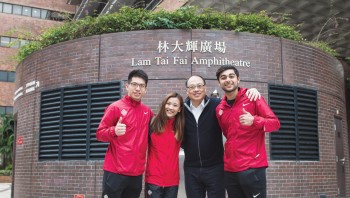
Dr Lam with PolyU athletes
I think sports are part of a holistic education and can shape a young person’s personality and character. Both sports and education can help them develop desirable qualities, such as strategic and analytical thinking, leadership skills, team spirit, resilience and a positive attitude. In my view, participating in sports is not only about health but can also help with the development of society as a whole.
Over the years, you have excelled as an industrialist, legislative councillor, advocate for sports, and leader in education. What is the secret of your success?
Tolerance, hard work, and always being willing to make the extra effort, no matter what the challenges are. I give my all to overcome difficulties and achieve my goals. In short, I am part of Hong Kong’s can-do spirit. I am always grateful for what I have and have seized every opportunity to give back to society.



